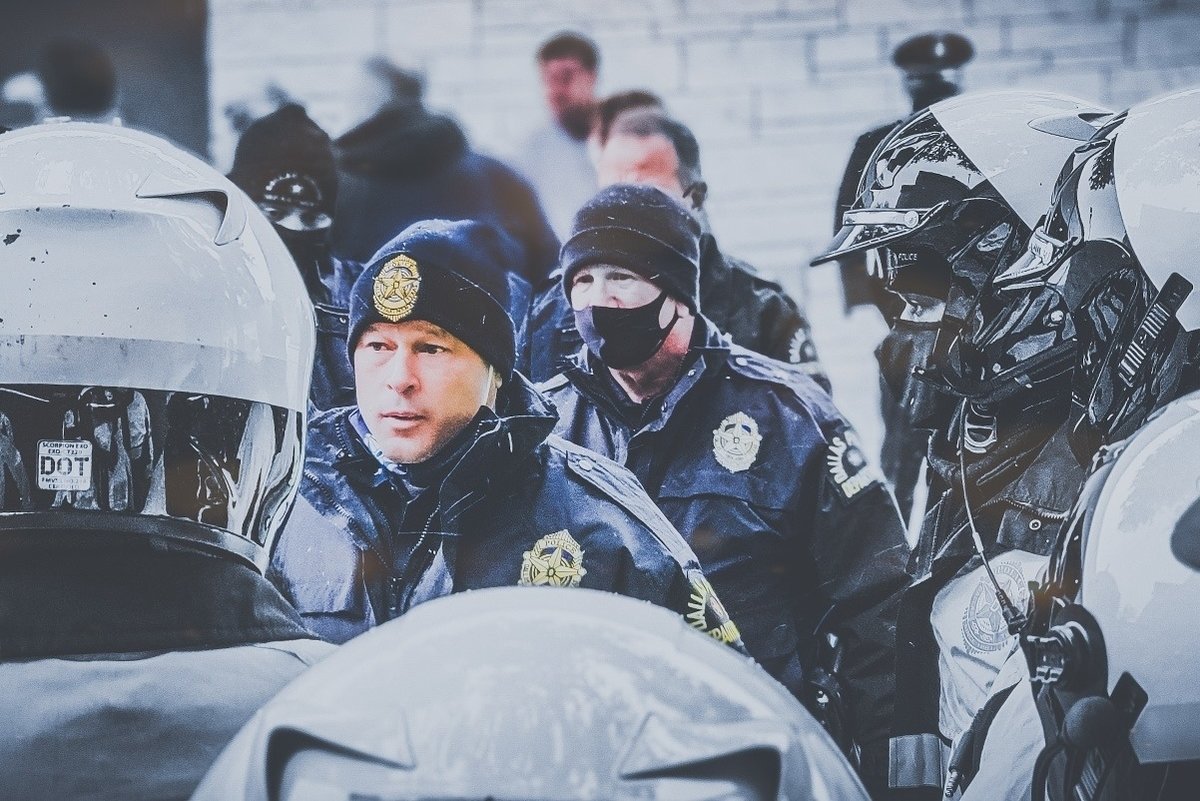
Fellow Dallas Police officers escort the body of Officer Mitchell Penton, who was struck and killed by a driver on Feb. 13, 2021. Dallas Police Department photo.
Stalked by the deadly COVID-19 virus and rocked by a rise in ambush slayings, 2021 was a grim year for law enforcement officers nationwide. But are the headlines trumpeting it as the deadliest year since the Great Depression right?
Marcia Ferranto, the CEO of the nonprofit National Law Enforcement Officers Memorial Fund, believes 2021 was the most lethal year for law enforcement since 1930. In a preliminary report analyzing the fatalities, her researchers counted 458 officers killed in the line of duty last year.
Following the slaying of a Cleveland cop by an alleged carjacker and other deaths, however, the ultimate number of police officers killed doing their jobs in 2021 is poised to rise to 511.
“The year 2021 will go down as the year of the most line-of-duty fatalities since 1930 due to the Covid-19 pandemic and increases in traffic fatalities and firearms ambushes,” Ferranto said in a prepared statement.
But some criminologists aren’t so sure.
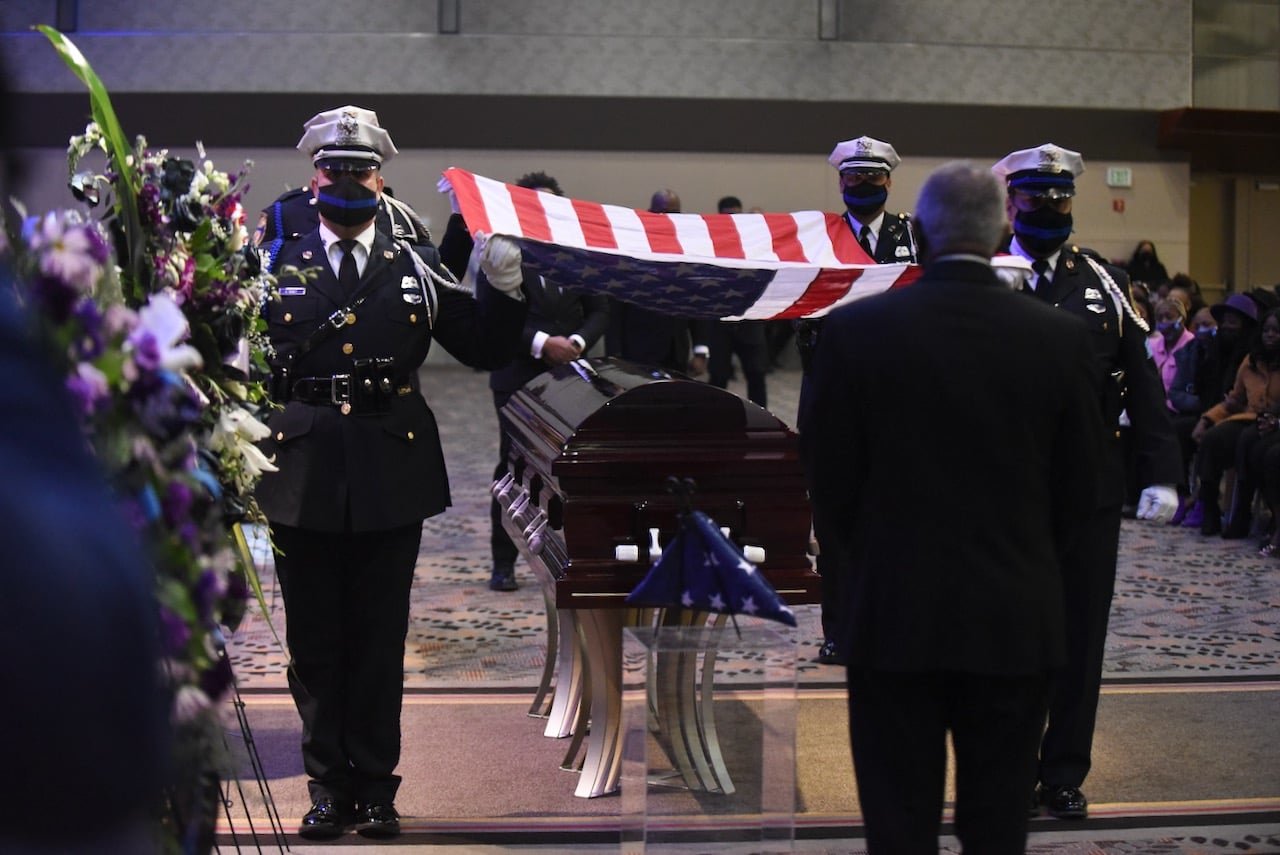
Cody Jorgensen, an assistant professor at Boise State University, told Coffee or Die Magazine more information is needed. He worries that calling 2021 the most dangerous year for cops in nine decades might come off as “rather misguided and even maybe a little disingenuous.”
Part of the problem stems from reports created during the Great Depression.
“I don’t put too much stock in data from the 1930s. The accuracy of records that old are questionable,” he said. “So, I can’t say with confidence anything about comparing the hazards of policing today to that of the ’30s. However, more recent data are more reliable. COVID aside, it is much safer being a police officer today than it was back in the late ’80s and early ’90s when crime peaked in this country.”
So is 2021 an anomaly? Jorgensen agrees that 2021 was a terrible year for officers, but it arrived during “a historically safe period for police.”
“During that time, we experienced comparatively low crime rates,” he said.
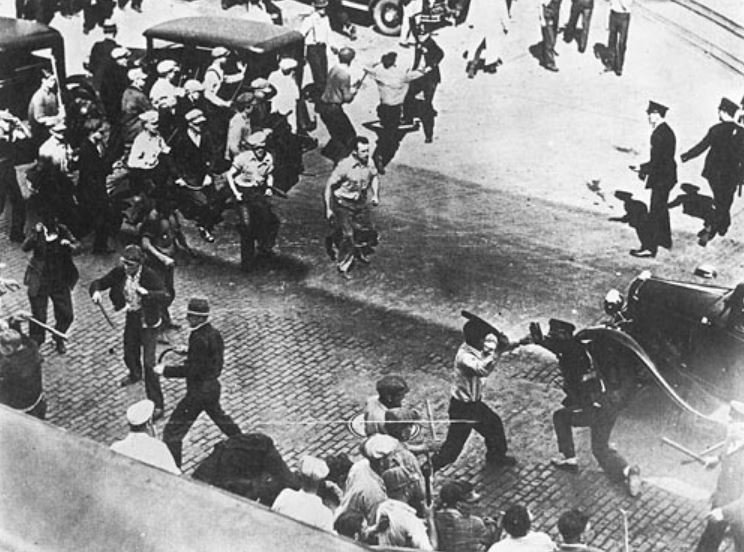
Tracking both the annual violent crime rate and officer fatalities over time, Thaddeus Johnson, an assistant professor at Georgia State University, believes that naming a year as the “deadliest” or “most dangerous” doesn’t really tell a full story about policing.
“I think if you choose either one, you paint an incomplete picture,” said Johnson, who suspects 2021 might end up being an outlier.
“We tend to look at the count and we really can’t only look at that. We have to look at the rate as well, because if you see the rate, the rate has been declining precipitously over time even though the numbers have stayed around the same — like population, more law enforcement officers, and things like that,” said Johnson, who spent a decade as a ranking Memphis Police officer before he became a criminologist.
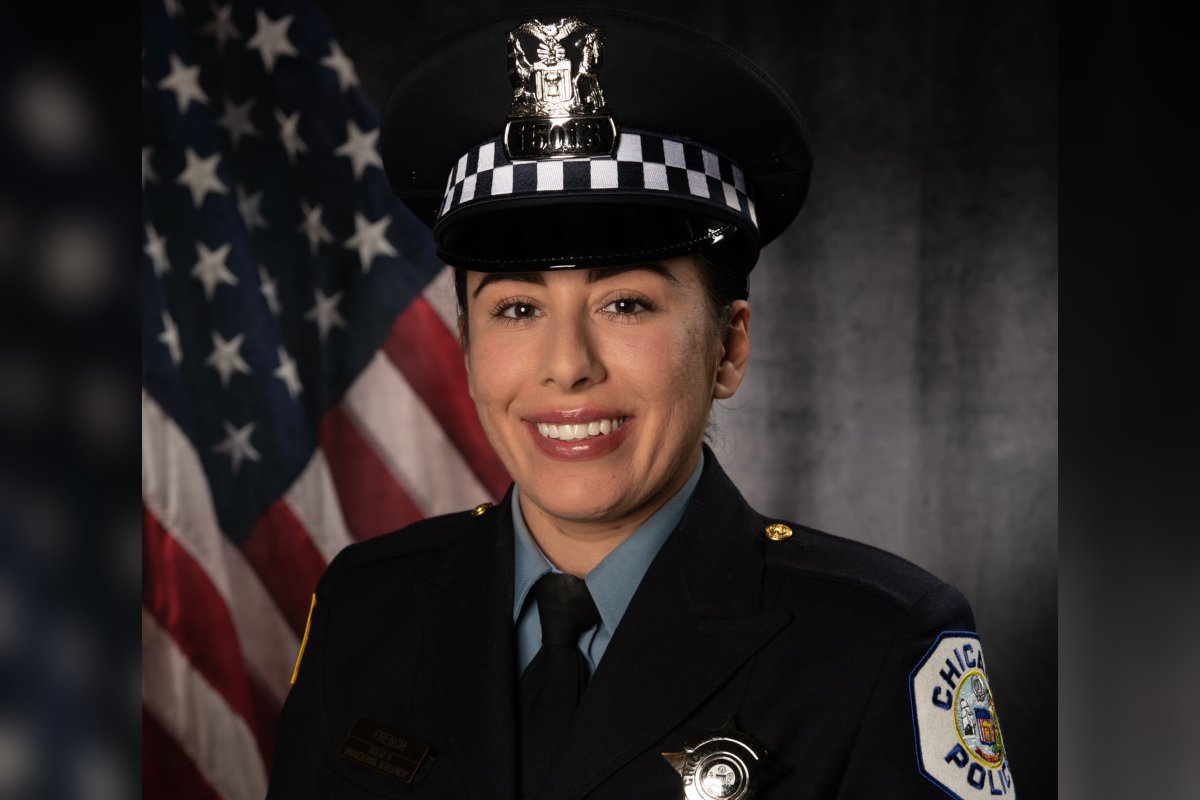
Scholars recorded 312 officers killed in the line of duty in 1930. Some of those deaths might’ve been tied to lingering effects from the influenza epidemic of 1928-29, but perhaps not to the same extent that COVID-19 threatens officers today.
In 2021, 301 officers died from COVID-19, according to the National Law Enforcement Officers Memorial Fund’s preliminary findings. That’s a 65% hike from the previous year, and currently COVID-19 remains the leading killer of cops nationwide.
But subtracting out COVID-19 deaths and then comparing the rest of the fatalities with the estimated number of officers on the job reveals about a .03% line-of-duty death rate for all officers, roughly the same as in 2011.
By including COVID-19 deaths, however, the police officer fatality rate doubles.
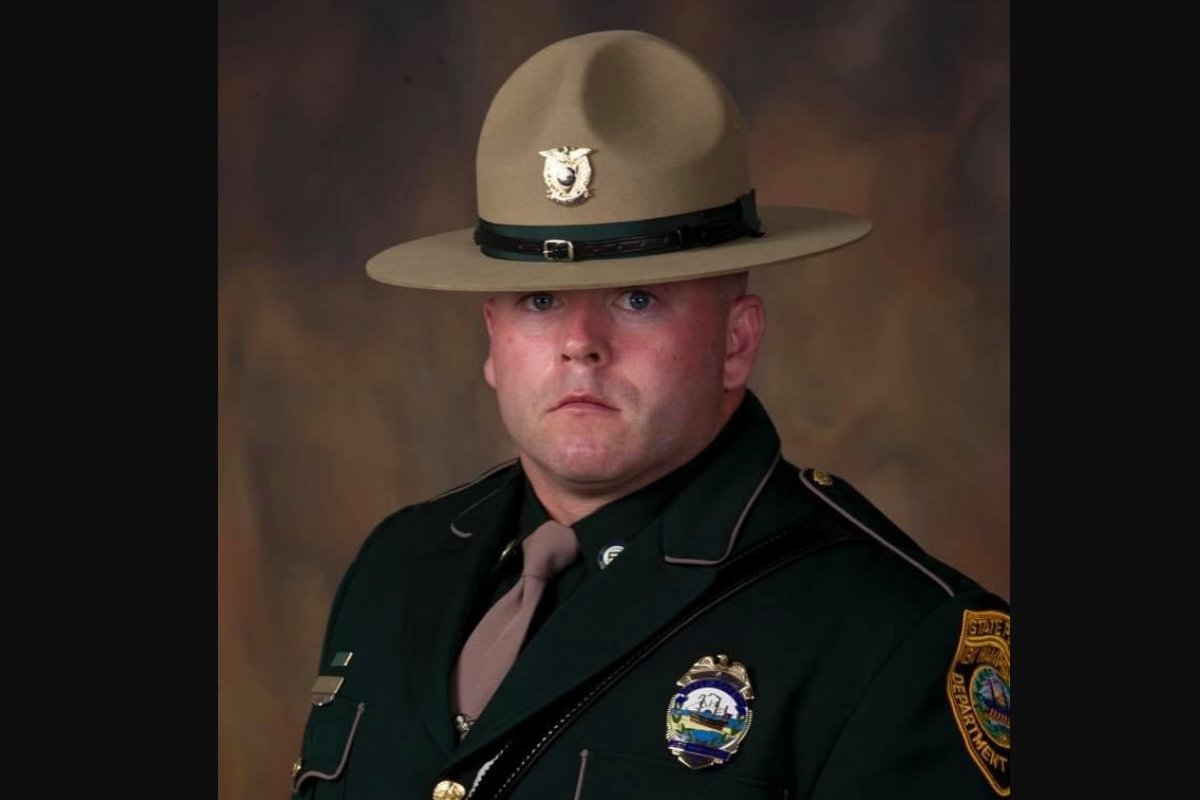
The National Law Enforcement Officers Memorial Fund relies on a task force to determine whether a COVID-19 mortality can be tied to the workplace. Since Jan. 1, 2022, it has recorded at least four more officers killed by COVID-19.
Boise State’s Jorgensen questions whether the pandemic should be considered as a factor when weighing whether policing is more dangerous today and in previous years. He pointed to a recent study that found food workers and other essential workers, such as in manufacturing and transportation, may suffer higher COVID-19 infection rates than emergency responders, such as police.
“Over the past two years, I’ve found it rather disturbing seeing police officers not wear masks when they should be and protest against vaccine mandates, etc.,” Jorgensen said. “So, if we’re going to say that COVID is causing policing to be the most dangerous it has been in nearly 100 years, we have to say the same thing about a bunch of other occupations. For example, I can say that, because of COVID, being a professor hasn’t been this dangerous since the Spanish flu epidemic. And that just sounds weird to me.”
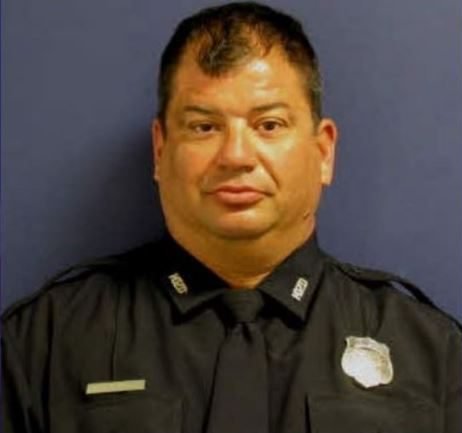
Georgia State’s Johnson said other data could be combined to determine whether policing is more dangerous today. These could include trends in assaults on officers, measurements of workplace stress during the pandemic, law enforcement suicides, deaths from traffic accidents, and unprovoked or ambush attacks on law enforcement.
“Maybe we don’t say the job is ‘the most dangerous’ but with the circumstances of a more deadly year and the circumstances under which officers operate are much more dangerous now,” Johnson said.
There was a sharp rise in the number of officers who were feloniously killed in 2021 — 73, the highest number since the attacks of 9/11, according to FBI Director Christopher Wray.
An FBI awareness report for law enforcement departments nationwide that was obtained by Coffee or Die showed unprovoked and ambush attacks nearly tripled over 2020’s numbers — from 11 to 32, as of Nov. 31, 2021.
And December saw several more officers killed in a combination of unprovoked and ambush attacks.
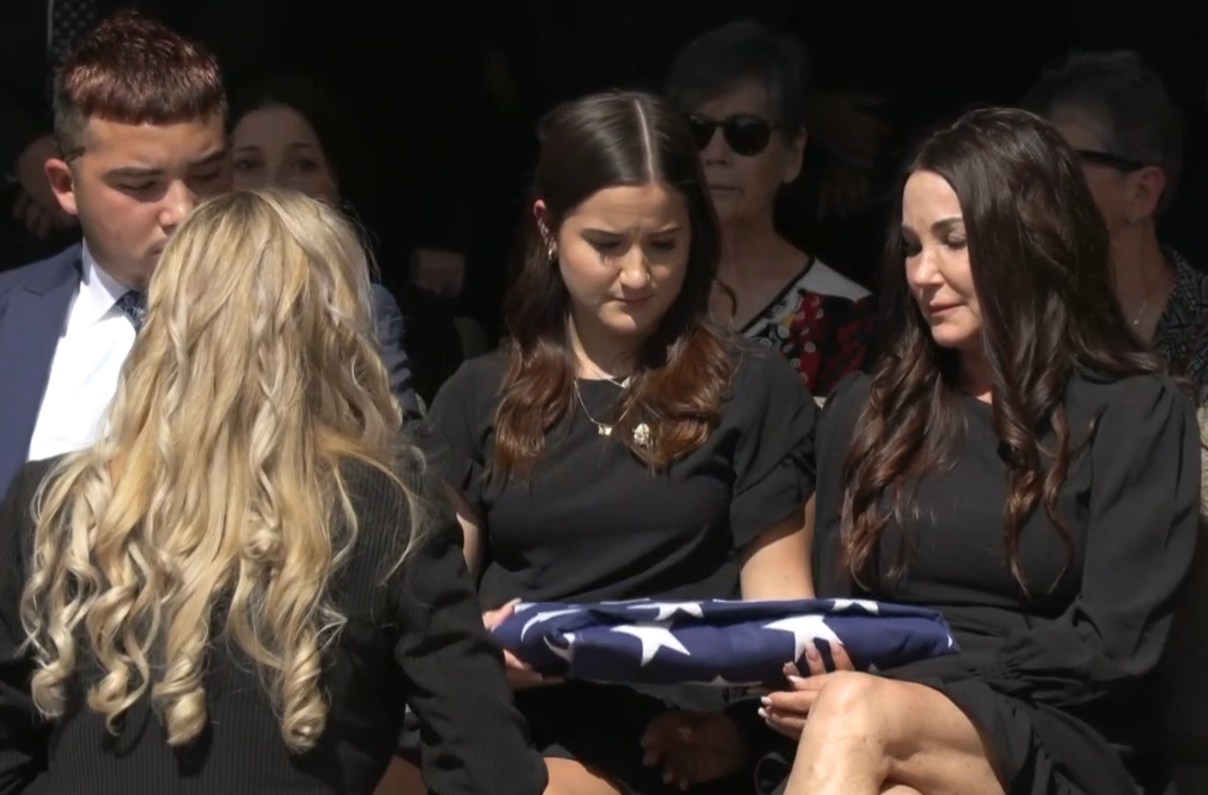
Johnson said the rise in felonious deaths is concerning “but it is also anomaly” because the 10-year average for these fatalities is roughly 50 annually.
“Anomalous spikes like this do occur occasionally but are short-lived,” he continued. “I don’t expect the increase we saw in 2021 to be repeated in 2022. The current 2022 numbers are lower than the 2021 numbers were at this point in the year, which is still very early.”
Boise State’s Jorgensen wonders if the spike in ambush and unprovoked killings partly stems from “public vengeance” triggered by the criminal justice system’s inability to hold some officers accountable for using excessive force on suspects.
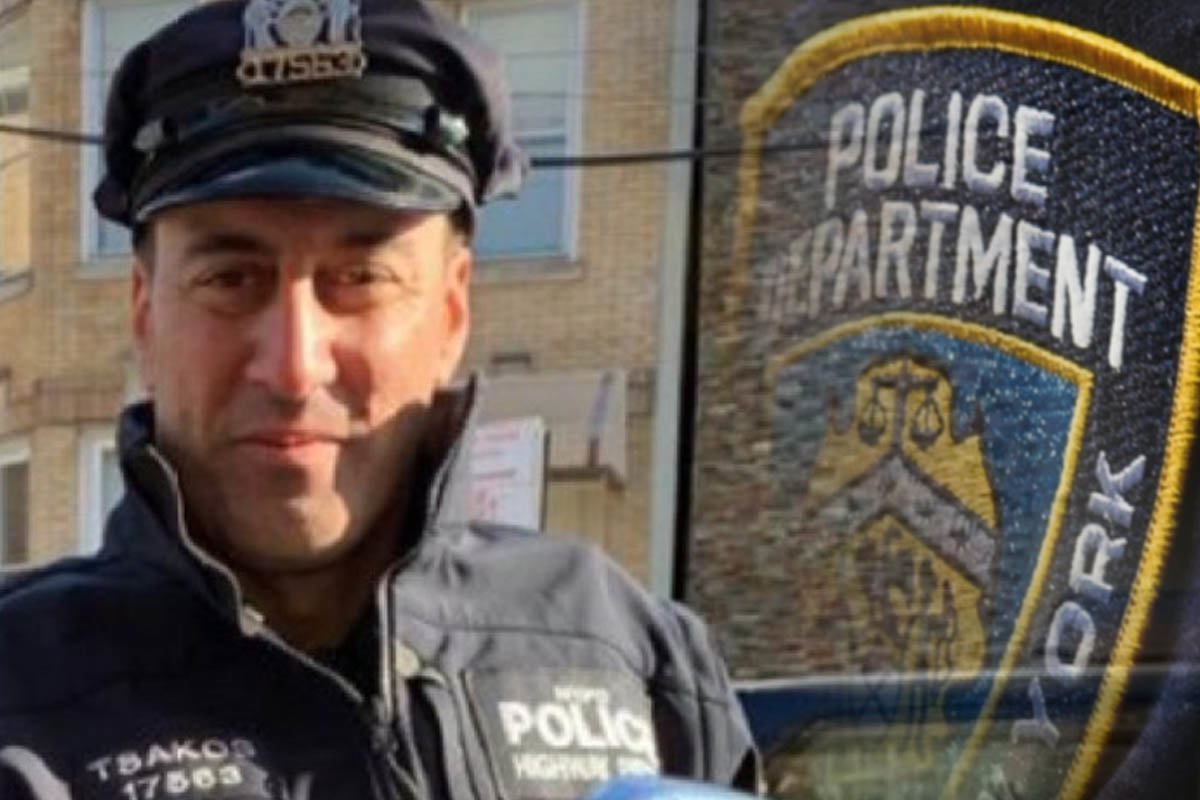
The National Law Enforcement Officers Memorial Fund’s report on 2021 deaths also pointed to the rise in traffic-related fatalities. The organization’s preliminary report tallied 58 cops who lost their lives in traffic accidents last year.
That was a 38% hike from 2020 and it was paced by rising numbers of officers working alongside a roadway who were struck and killed by other vehicles.
“Tragically, struck-by fatalities have increased by an extraordinary 93% over last year,” the authors wrote.
Read Next:
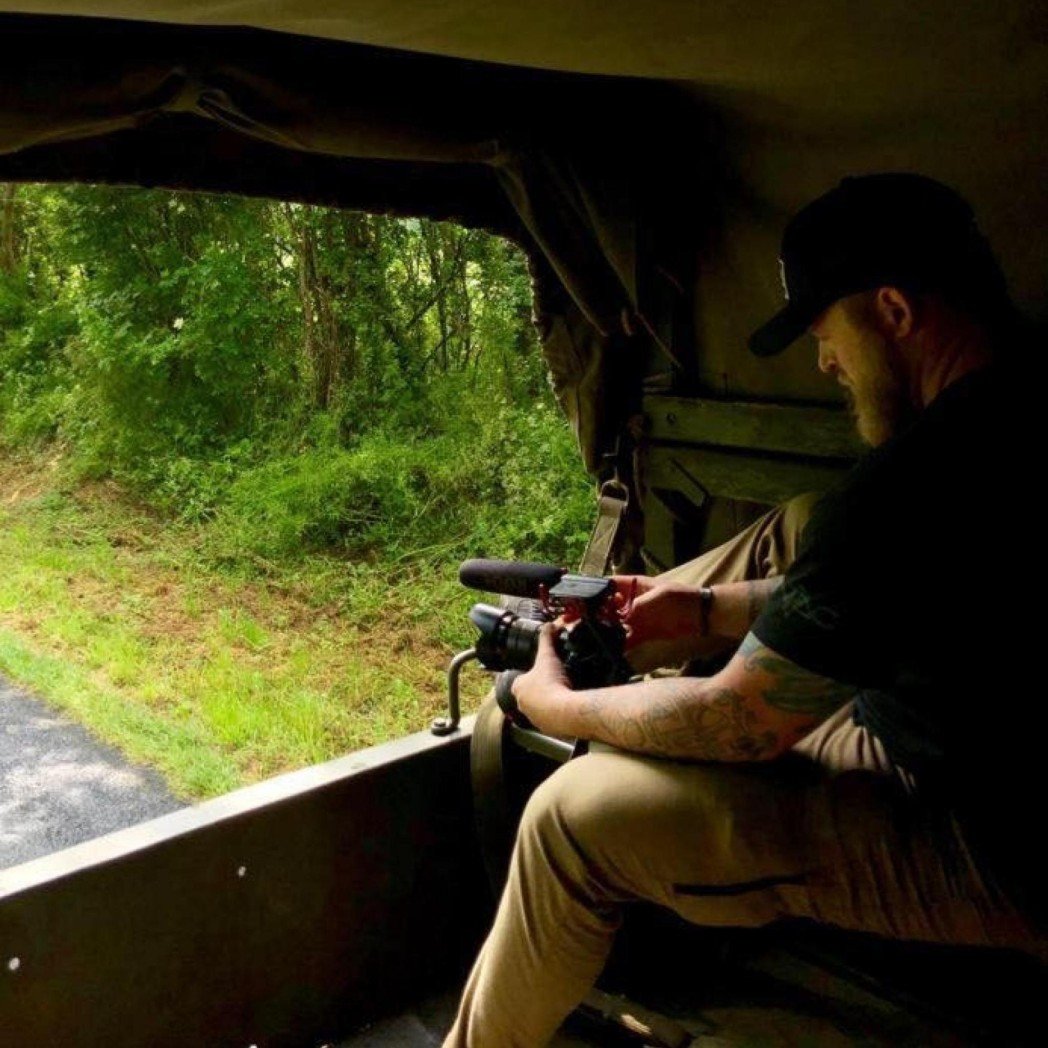
Joshua Skovlund is a former staff writer for Coffee or Die. He covered the 75th anniversary of D-Day in France, multinational military exercises in Germany, and civil unrest during the 2020 riots in Minneapolis. Born and raised in small-town South Dakota, he grew up playing football and soccer before serving as a forward observer in the US Army. After leaving the service, he worked as a personal trainer while earning his paramedic license. After five years as in paramedicine, he transitioned to a career in multimedia journalism. Joshua is married with two children.
BRCC and Bad Moon Print Press team up for an exclusive, limited-edition T-shirt design!
BRCC partners with Team Room Design for an exclusive T-shirt release!
Thirty Seconds Out has partnered with BRCC for an exclusive shirt design invoking the God of Winter.
Lucas O'Hara of Grizzly Forge has teamed up with BRCC for a badass, exclusive Shirt Club T-shirt design featuring his most popular knife and tiomahawk.
Coffee or Die sits down with one of the graphic designers behind Black Rifle Coffee's signature look and vibe.
Biden will award the Medal of Honor to a Vietnam War Army helicopter pilot who risked his life to save a reconnaissance team from almost certain death.
Ever wonder how much Jack Mandaville would f*ck sh*t up if he went back in time? The American Revolution didn't even see him coming.
A nearly 200-year-old West Point time capsule that at first appeared to yield little more than dust contains hidden treasure, the US Military Academy said.












